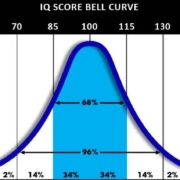In my prior post, I discussed the new OCR guidance clarifying the obligation of schools to provide students with Attention-Deficit/Hyperactivity Disorder (“ADHD”) with equal educational opportunity under Section 504 of the Rehabilitation Act of 1973 (“Section 504”). I discussed the background of the legislation, the definition of “disability,” as well as when the District is obligated to evaluate students. In this post I will discuss some other arguments you can present to your District to get your child evaluated.
Other red flags include:
excessive daydreaming;
distracting oneself by socializing to the degree that doing so prevents, or significantly interferes with, completing work; inability to stay still or stay in a seat;
recurring difficulties in organizing, or inability to follow through on instructions and failing to finish schoolwork;
repeatedly missing details or having difficulty processing information as quickly or accurately as expected for his or her age and grade level;
repeatedly losing things;
and routinely interrupting conversations or other activities.
When seeking to have their children evaluated, parents should let the District know if their children are having significant difficulties related to beginning tasks, organizing and recalling information, and completing assignments such as homework and multi-step class projects. Also keep in mind that other disorders, such as depression or anxiety, may be masked by ADHD symptoms. Without evaluations, these other disabilities may go untreated.
Someone with ADHD may achieve a high level of academic success but may nevertheless be substantially limited in a major life activity due to his or her impairment because of the additional time or effort he or she must spend to read, write, or learn compared to others. The OCR has found that school districts sometimes rely on a student’s average, or better-than-average, grade point average (GPA) and make inappropriate decisions. I have seen this many times in my practice and this is a common complaint from parents.
Of note, just because the parents of a child with ADHD takes their daughter to a Reading Specialist after school, which helps her grades, does not mean that the child does not have a disability. And parents should not be penalized for doing what’s best for their child. If Districts point to their child’s good grades, parents should point to how long it takes their child to plan, complete, and turn in an essay, term paper, homework assignment, or exam as compared to other students without ADHD.
Under Section 504, and evaluation must include more than an IQ test. It should measure specific areas of educational need. These include speech processing, concentration issues, and behavioral concerns and they must be administered by trained personnel.
Children with the “inattentive-type” ADHD are most likely to be overlooked as they are less likely to engage in impulsive or disruptive behavior and therefore fly under the radar of District personnel. As parents, you need to make sure that Districts do evaluate children with these characteristics.
For more information, feel free to Contact Me.







